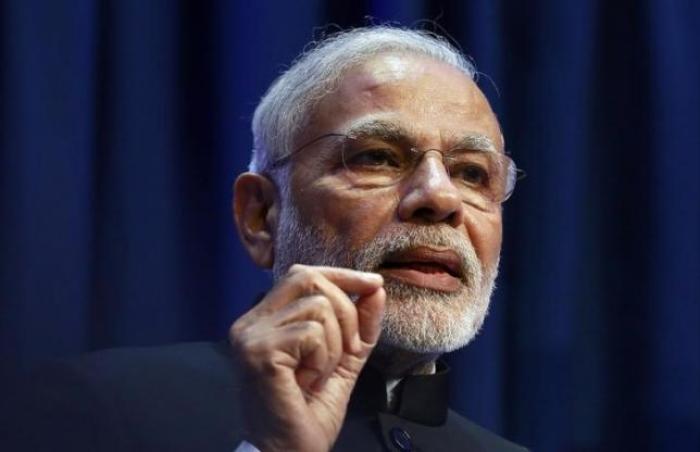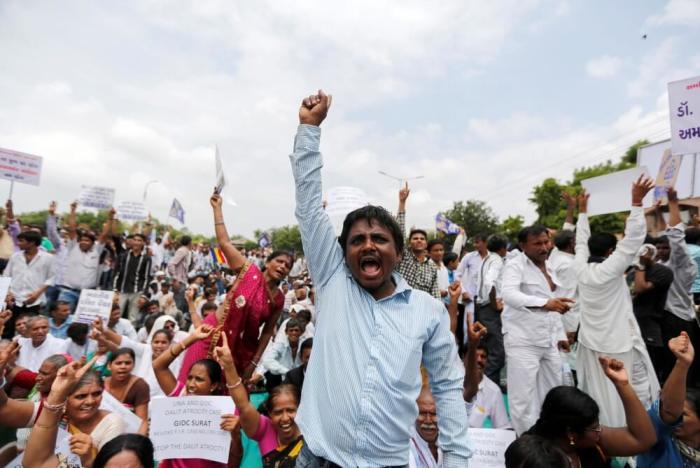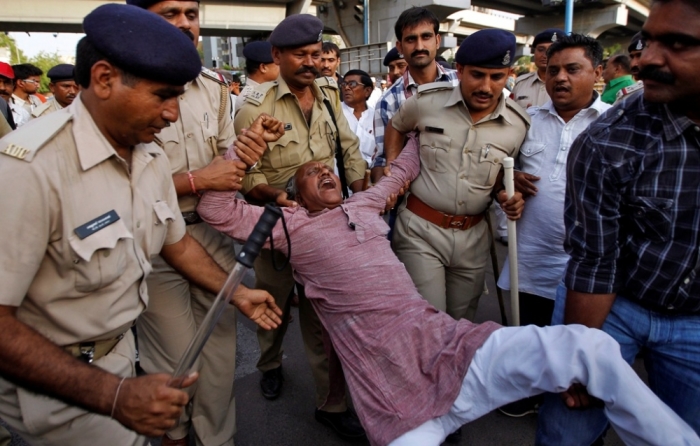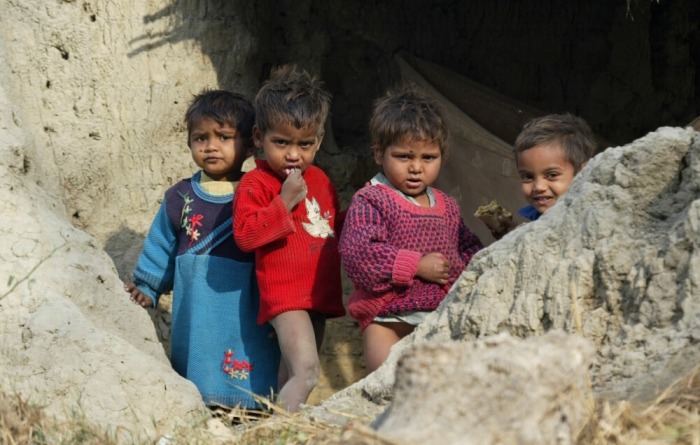Prime Minister Modi May Be India's Abraham Lincoln? PM Says Caste System Has 'Destroyed This Country,' Offers Hope for Casteless Society

India's Prime Minister Narendra Modi has the potential to become the Indian version of Abraham Lincoln, says one human rights activist after the country's leader declared his devotion to help the poorest and most deprived social class, and labeled the unjust caste system as "poison" in an interview on Friday.
As the caste system makes it nearly impossible for those considered to be "Dalits" or "untouchables" and their children to rise from the lowest rung of Indian society and earn their way to a comfortable life, millions of Dalits have rioted in recent weeks to protest and proclaim that the injustice they face must end.
What is becoming known as the "Dalit uprising" began in July, as millions of Dalits have rioted against the Indian system of social order and have demanded that they finally be given the rights granted to them by the country's Constitution.
The uprising started after news spread that a group of Dalit youths were brutally thrashed by Hindu "cow vigilantes" in Gujarat because they skinned a dead cow.
As the caste system forces Dalits to take on dirty, undesirable jobs that yield little pay, it also does not allow for a person who is born a Dalit to ever rise out of that social classification.
Modi, who has low-caste roots, criticized the Hindu vigilantes as being "fake cow protectors, who have nothing to do with cows" who are "just trying to create strain on our society," The Washington Post reported last month.
He further commented on the nation's social imbalance during an interview with CNN-News18 that was broadcasted Friday night.
"If we want to free this country of poverty then we need development. We will need to empower the poor," Modi asserted, according to a translation by First Post. "We have a culture dating back thousands of years ... we have seen some imbalance in our society ... we have to intelligently take our society out of this imbalance. This is a social problem. It is deeply rooted. Politics on social imbalances is disservice to society ... to all those who have faced injustice for generations."
"All those who were self appointed guardians were trying to create tension in the country did not like this — that Modi is with the Dalits, that Modi devotes himself to tribals," Modi added. "I am. I am devoted to the development of all the Dalit, oppressed, underprivileged and deprived. Those who see this as an obstruction to their politics are the ones creating trouble."

Modi reasoned that the people who take issue with his political stance in support of the Dalits and society's most vulnerable are the ones who have "destroyed" India with the "poison of caste."
"All those who have fed this country the poison of caste divide have destroyed this country," the prime minister argued. "They must stop giving political tones to social problems. We must go forward with a purpose. And I want to ask the society also … are these incidents befitting of a civilized society?"
Modi urged political leaders, even ones in his own Bharatiya Janata Party, to be responsible representatives to all the people in the nation.
"We all have to work collectively to give strength to the country's unity," he proclaimed.
Modi said one way his administration has helped alleviate poverty in India is by forcing banks to give loans to Dalits in order to help them create their own businesses and help them rise out of poverty.
"One of the things that we have done is called 'Stand Up India.' I have told banks that every branch must give financial aid to a Dalit, a tribal and a woman," he said. "They must make them an entrepreneur. The country has 1.25 lakh branches of banks. If they empower even three people each, they will benefit 4-5 lakh families. People who did not have this sort of financial empowerment, will feel empowered. They will be an economic strength."

Modi's remarks were praised by Bishop Joseph D'souza, a prominent human rights activist and the president of the All India Christian Council.
"The Dalit issue is the single most significant civil rights issue in the world, and maybe in world history," D'Souza said in a statement to The Christian Post. "Today, Prime Minister Modi went where no other prime minister has gone before. He condemned the system which has disenfranchised hundreds-of-millions of Indians for centuries."
D'Souza added that Modi reminds him of great Indian human rights champion B.R. Ambedkar, who is the drafter of India's Constitution.
"His courage to criticize members of his own party and to acknowledge the destructive effects of caste on Indian society were courageous, important, and significant. The Indian Constitution enshrines the rights of Dalits yet it remains largely unenforced," D'Souza added.
"Should he chose to, Prime Minister Modi could become an Ambedkar of our day. He could be a kind of Abraham Lincoln for India, intent upon liberating the most oppressed people on planet Earth, perhaps even in human history," D'Souza continued. "This is the right thing to do, and it is the sensible thing to do. Modi's ambition for economic development in India can never be realized as long as the country systematically discriminates against millions of its own citizens."
D'Souza said that for the first time in his life, he can envision there one day being a "casteless India." However, there can be no "end of caste without massive social reform."






























